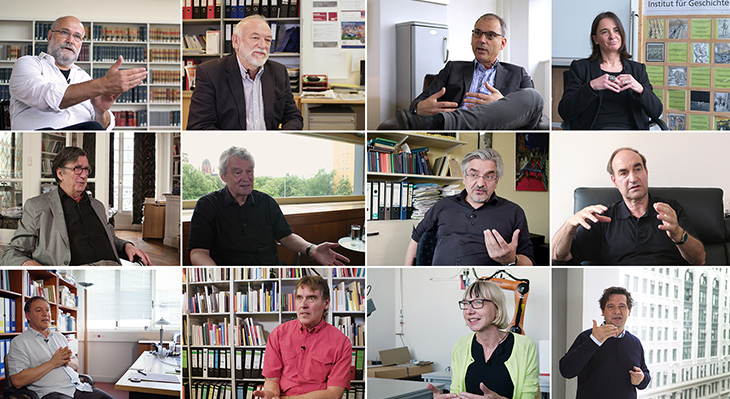Where technological progress could lead
BIBB conducts a series of video interviews with leading researchers
25/2019 | Bonn, 02.08.2019

Technological progress has always taken place. But what causes it? Who or what drives it? And what are its impacts? Twelve video interviews carried out by the Federal Institute for Vocational Education and Training (BIBB) with well-known researchers from all over the world have now helped to deliver responses to these central issues. The videos offer theoretical perspectives from different disciplines and contribute to the present debate surrounding the future of society and work in a digital age. This BIBB project has been funded by the Federal Ministry of Education and Research (BMBF) and supplements the explanatory approach that is currently favoured within research circles.
This states that task changes in a digitalised world of work may result in employment and wage polarisation. In the event of employment polarisation, the assumption is that the proportion of employees in the medium wage segment will fall relative to employee proportions at the lower and upper end of the segment. Wage polarisation, on the other hand, would see slower growth in the medium wage segment than in the bottom and top segments. BIBB, however, is of the view that this approach is too cursory because it reduces observation to task-related replaceability, mostly takes account of the present economic situation only and ignores all other impacts.
The films produced, each of which are around 25 minutes in length, seek to address this deficit. “The interviews set out important milestones in terms of illustrating the terrain that needs to be investigated in future,” said BIBB’s Director of Research Professor Hubert Ertl. The interview partners inform us of the consequences that new technologies are already having for policy making and economics and of possible future repercussions in this regard. We are also presented with various points of view which enable us to see the extent to which human co-existence is affected. The interviews thus provide an incentive to think about things which can no longer be stopped but which can still be shaped.”
The videos were recorded in 2018 and 2019 in France, the United Kingdom, Austria, the USA and Germany. The following experts present their views against the background of their particular research expertise.
- David Bates/Berkeley (artificial intelligence and automation from a culture theory perspective)
- Yochai Benkler/Harvard (social productions in networks and decentralised cooperation for innovation and the production of information from a legal point of view)
- Martina Heßler/Hamburg (history of technology)
- Hartmut Hirsch-Kreinsen/Dortmund (digitalisation of industrial work)
- Heinz D. Kurz/Graz (history of economic thought and economic theory)
- Bruno Latour/Paris (stakeholder network theory)
- Frédéric Lebaron/Paris (Bourdieu and data analysis, Bourdieu’s theory)
- Richard Münch/Bamberg (global division of labour, education and academic capitalism)
- Sabine Pfeiffer/Nuremberg (humans and technology, digitalisation and labour capacity)
- Joachim Renn/Münster (translations from a system theory point of view)
- Uwe Schimank/Bremen (sociological theory of the modern society)
- Trebor Scholz/New York (platforms and cooperatives)
Further information:
- Video interviews https://www.bibb.de/en/94825.php
- BIBB research project “Technological progress and worlds of work” https://www.bibb.de/en/76955.php
Contact partner:
Prof. Dr. Robert Helmrich, email: helmrich@bibb.de
Dr. Michael Tiemann, email: tiemann@bibb.de
Specimen copy requested if printed.